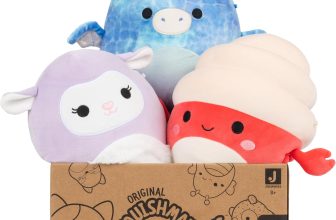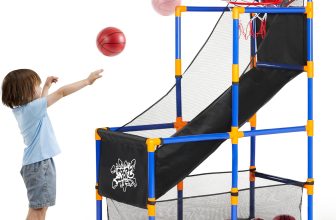
Best Christmas Spoons in a Case, Card Games for Kids – Review Family Games – Didiar
Best Christmas Spoons in a Case & Card Games for Kids: Review of Family Games
Christmas is a magical time, filled with warmth, family, and traditions. Adding special touches like festive Christmas spoons and engaging in fun family activities like card games can make the holiday season even more memorable. This article explores the world of collectible Christmas spoons, focusing on sets presented in a case for safekeeping and display. We’ll also dive into the realm of card games designed for kids, reviewing several family-friendly options that promise hours of entertainment. We’ll consider factors like age appropriateness, ease of play, educational value, and overall fun factor to help you choose the perfect games for your family’s holiday gatherings.
Collectible Christmas Spoons in a Case: More Than Just Utensils
Beyond their practical use, Christmas spoons, particularly those elegantly housed in a case, become treasured keepsakes. These aren’t your everyday silverware; they’re miniature works of art, often adorned with intricate designs, festive motifs, and even precious metals. Owning a set of Christmas spoons in a case is about embracing a tradition, creating a visual representation of holiday memories, and perhaps even starting a family heirloom.
The Appeal of Presentation: Why a Case Matters
While individual Christmas spoons are charming, the inclusion of a presentation case elevates the entire experience. A well-crafted case not only protects the spoons from dust, scratches, and tarnishing but also transforms them into a beautiful display piece. Imagine opening a velvet-lined case to reveal a gleaming set of Christmas spoons, each reflecting the soft glow of holiday lights. The case itself can be a part of the aesthetic, made from wood, metal, or even leather, adding another layer of sophistication. For collectors, a case is essential for preserving the value and integrity of the set. For gift-givers, a cased set demonstrates thoughtfulness and care, showing that you’ve chosen something special and enduring.
Consider the various case styles available. Some are simple hinged boxes, while others are more elaborate with multiple tiers, viewing windows, or even built-in lighting. The material and construction of the case should complement the spoons themselves, creating a harmonious and visually appealing package. Think about where the set will be displayed – a glass cabinet, a dining room table, or perhaps a special shelf. The case should be chosen to fit the space and enhance the overall presentation.
Factors to Consider When Choosing Christmas Spoons in a Case
Selecting the perfect set of Christmas spoons in a case requires careful consideration. Here are some key factors to keep in mind:
- Material: Are the spoons made of stainless steel, silver-plated, or sterling silver? The material will affect the durability, shine, and overall value of the set. Sterling silver spoons, while more expensive, are considered the most luxurious and often become cherished family heirlooms.
- Design: What are the spoons adorned with? Common motifs include Santa Claus, reindeer, snowmen, Christmas trees, and religious symbols. Consider your personal preferences and the overall aesthetic of your holiday décor.
- Craftsmanship: Are the designs intricately detailed and well-executed? Look for spoons with clean lines, smooth finishes, and no visible imperfections.
- Case Quality: Is the case sturdy and well-made? Does it adequately protect the spoons and enhance their presentation? Check the hinges, latches, and lining for quality and durability.
- Number of Spoons: How many spoons are included in the set? Consider the size of your family and your intended use for the spoons. Some sets include only a few spoons for special occasions, while others are large enough for everyday use.
- Price: Christmas spoon sets in cases can range in price from affordable to quite expensive. Set a budget before you start shopping and stick to it. Consider the long-term value and potential for the set to become a family heirloom.
A practical application example would be a senior care home. A set of these spoons can be brought out each Christmas, serving as a focal point for conversation and reminiscence. The spoons can evoke memories of past holidays, helping residents feel connected to their traditions and loved ones.
Family Card Games for Kids: Unplug and Play!
In an increasingly digital world, the simple joy of playing a card game together as a family can be a refreshing and rewarding experience. Card games offer a unique blend of entertainment, learning, and social interaction, fostering communication, strategic thinking, and good sportsmanship. When choosing card games for kids, it’s crucial to select options that are age-appropriate, easy to learn, and engaging enough to hold their attention. Let’s explore some top choices that are sure to bring laughter and fun to your family gatherings.
Essential Qualities of Great Card Games for Kids
What makes a card game truly “great” for kids? Several factors contribute to a game’s success in engaging young players and creating positive experiences. First and foremost, the game should be easy to learn. Complex rules and convoluted gameplay can quickly lead to frustration and disinterest. Look for games with clear, concise instructions and simple mechanics that even young children can grasp. Visual aids, such as illustrations or diagrams, can also be helpful in explaining the rules.
Another important quality is age appropriateness. A game designed for teenagers may be too challenging for younger children, while a game designed for toddlers may be too simplistic for older kids. Consider the recommended age range on the game box and choose games that are suitable for the ages and developmental levels of your children. Games with colorful artwork, relatable themes, and engaging characters are more likely to capture the attention of young players.
Beyond ease of learning and age appropriateness, a great card game for kids should also be fun and engaging. The gameplay should be stimulating and rewarding, offering opportunities for players to make choices, strategize, and interact with each other. Games that incorporate elements of luck, skill, and competition can be particularly exciting. Finally, the game should promote positive social interaction and encourage good sportsmanship. Look for games that require players to cooperate, communicate, and take turns. Games that emphasize teamwork and collaboration can help children learn valuable social skills.
Review of Top Family Card Games for Kids
Now, let’s delve into a review of some highly recommended family card games for kids, focusing on their features, playability, and overall appeal:
Uno
Uno is a classic card game that has been enjoyed by families for generations. The objective is simple: be the first player to get rid of all your cards. Players take turns matching the top card on the discard pile by either color or number. Special action cards, such as Skip, Reverse, and Draw Two, add twists and turns to the gameplay. Uno is easy to learn, fast-paced, and suitable for players of all ages, making it a perfect choice for family gatherings.
Pros: Simple rules, fast-paced gameplay, suitable for all ages, readily available.
Cons: Can be repetitive, relies heavily on luck.
Go Fish
Go Fish is another classic card game that is perfect for young children. The objective is to collect sets of four matching cards. Players take turns asking each other for specific cards. If a player has the card requested, they must give it to the asker. If they don’t, they say “Go Fish,” and the asker draws a card from the draw pile. Go Fish is a great way to teach children about matching, number recognition, and turn-taking.
Pros: Simple rules, good for young children, teaches matching and number recognition.
Cons: Can be repetitive, relies heavily on luck.
Old Maid
Old Maid is a traditional card game that is similar to Go Fish. The objective is to avoid being left with the “Old Maid” card at the end of the game. Players take turns matching pairs of cards and discarding them. The player left with the Old Maid card is the loser. Old Maid is a fun and easy game that can be enjoyed by players of all ages.
Pros: Simple rules, easy to learn, fun for all ages.
Cons: Can be repetitive, losing player is singled out.
Sleeping Queens
Sleeping Queens is a more modern card game that combines strategy and luck. The objective is to wake up as many queens as possible. Players use number cards to add and subtract, and special action cards to put queens to sleep, steal queens, or protect their own queens. Sleeping Queens is a fun and engaging game that teaches children about math skills and strategic thinking.
Pros: Fun and engaging, teaches math skills and strategic thinking, good for older children.
Cons: Rules can be slightly more complex than other games.
Spot It!
Spot It! is a unique card game that challenges players to quickly identify matching symbols on two different cards. Each card has several different symbols, and any two cards will always have exactly one symbol in common. Spot It! is a fast-paced and addictive game that improves visual perception and reaction time. It’s a great choice for families who enjoy quick and challenging games.
Pros: Fast-paced, improves visual perception and reaction time, good for all ages.
Cons: Can be overwhelming for younger children.
Comparison Table of Family Card Games
| Game | Age Range | Skill Focus | Complexity | Fun Factor |
|---|---|---|---|---|
| Uno | 7+ | Matching, Number Recognition | Low | High |
| Go Fish | 4+ | Matching, Number Recognition | Low | Medium |
| Old Maid | 5+ | Matching | Low | Medium |
| Sleeping Queens | 8+ | Math, Strategy | Medium | High |
| Spot It! | 6+ | Visual Perception, Reaction Time | Medium | High |
For a practical application, consider a classroom setting. Teachers can use card games like Sleeping Queens or Spot It! as engaging ways to reinforce math skills or improve visual perception. These games can be incorporated into lesson plans or used as fun activities during free time.
Making the Most of Family Game Night
To truly elevate your family game nights, consider these tips:
- Set a Regular Schedule: Designate a specific night each week for family game night. Consistency helps create a tradition that everyone looks forward to.
- Minimize Distractions: Turn off electronic devices (phones, tablets, TVs) to create a focused and distraction-free environment.
- Involve Everyone in Choosing Games: Let each family member take turns choosing the game for the night. This ensures that everyone gets a chance to play their favorite games.
- Create a Comfortable Atmosphere: Set up a cozy space with comfortable seating, snacks, and drinks.
- Focus on Fun, Not Winning: Emphasize the importance of having fun and spending time together, rather than focusing solely on winning or losing. Encourage good sportsmanship and celebrate each other’s successes.
- Adapt the Rules as Needed: Don’t be afraid to modify the rules of a game to make it more accessible or enjoyable for younger children. You can simplify the gameplay, reduce the number of cards, or create your own variations.
- Take Breaks: If the game night is lasting for an extended period, take short breaks to stretch, grab snacks, or simply chat.
- Celebrate the End: At the end of the game night, take a few minutes to reflect on the experience. Discuss what everyone enjoyed about the games and make plans for future game nights.
Christmas spoons in a case can even be incorporated into game night! Award the winner of the game a spoon as a small, festive prize. This adds a touch of holiday cheer and makes the game night even more special.
FAQ About Christmas Spoons and Card Games
Here are some frequently asked questions regarding Christmas spoons and card games for kids:
- Are Christmas spoons safe for children to use?
- Whether or not Christmas spoons are safe for children depends largely on the material they are made from and the age of the child. Sterling silver spoons are generally safe, but supervision is always recommended to prevent any accidents. Stainless steel spoons are also a safe option, but ensure they are free from any sharp edges or imperfections. Avoid spoons made with lead-based materials or those with small, detachable parts that could pose a choking hazard. For younger children, consider using spoons made of food-grade silicone, which are soft, flexible, and gentle on their gums. Ultimately, assessing the specific product and the child’s maturity level is essential before allowing them to use Christmas spoons.
- How should I care for and clean my Christmas spoons in a case?
- Proper care and cleaning are crucial to maintain the luster and longevity of your Christmas spoons. For sterling silver spoons, gently hand wash them with a mild dish soap and warm water. Avoid using abrasive cleaners or scrub brushes, as they can scratch the delicate surface. After washing, rinse thoroughly and immediately dry with a soft, lint-free cloth to prevent tarnishing. Silver polish can be used periodically to remove tarnish, but follow the manufacturer’s instructions carefully. For stainless steel spoons, regular dish soap and water are sufficient, and they can also be washed in the dishwasher on a gentle cycle. Always ensure the spoons are completely dry before storing them back in their case. To further protect them from tarnishing, you can place anti-tarnish strips or cloths inside the case.
- What is a good age to start playing card games with children?
- The ideal age to introduce card games to children typically falls between 3 and 5 years old. At this age, children usually have developed the basic cognitive and motor skills required to understand simple game rules and handle cards. Start with very basic matching games or simple card games like “Go Fish” or “Old Maid,” which focus on matching and turn-taking. As children grow older and develop more complex thinking skills, you can introduce more strategic games like “Uno” or “Sleeping Queens.” Adapt the rules to fit the child’s developmental level and focus on making the experience fun and engaging rather than strictly adhering to the official rules. The key is to start slowly and gradually increase the complexity of the games as the child’s skills and understanding improve.
- What are the benefits of playing card games with children?
- Playing card games with children offers a multitude of benefits that extend beyond mere entertainment. Card games foster cognitive development by enhancing memory, attention span, and problem-solving skills. They also promote social and emotional growth by teaching children about turn-taking, following rules, and dealing with winning and losing. Additionally, card games encourage communication and interaction, as players need to communicate with each other, strategize, and negotiate. Some card games, like “Sleeping Queens,” can also help children develop math skills and strategic thinking. Overall, playing card games is a fun and engaging way to promote learning, social skills, and family bonding.
- How can I adapt card games to make them easier for younger children?
- Adapting card games to suit younger children involves simplifying the rules, reducing the number of cards, and focusing on core concepts. For instance, in “Uno,” you could remove the special action cards or limit the number of cards each player receives. In “Go Fish,” you could focus solely on matching colors instead of numbers, making it easier for younger children to grasp the concept. You can also create visual aids, such as drawing pictures of the different cards or using larger, easier-to-handle cards. Encourage cooperation and teamwork, rather than competition, and celebrate even small successes. Remember, the goal is to create a positive and enjoyable experience for the child, so don’t be afraid to modify the rules and adjust the gameplay to suit their individual needs and abilities.
- Are there any educational card games that are also fun for kids?
- Yes, there are many educational card games that combine learning with fun for children. “Sleeping Queens,” as mentioned earlier, helps develop math skills and strategic thinking. “Alphabet Go Fish” can teach letter recognition and vocabulary. “Sum Swamp” is a math-based card game that teaches addition and subtraction. “Professor Noggin’s Card Games” cover a wide range of educational topics, such as science, history, and geography. Look for games that align with your child’s interests and learning goals, and be sure to choose games that are age-appropriate and engaging. These educational card games provide a valuable opportunity to reinforce learning concepts while enjoying quality time with family.
- Where can I find reputable retailers for Christmas spoons and card games?
- Reputable retailers for Christmas spoons and card games can be found both online and in physical stores. For Christmas spoons, antique shops, specialty gift stores, and online marketplaces like Etsy and eBay often offer a wide selection of vintage and collectible spoons. Major department stores and silverware retailers also carry Christmas spoon sets, particularly during the holiday season. For card games, you can find a wide variety at toy stores, bookstores, online retailers like Seller, and specialty game stores. When purchasing online, be sure to check the retailer’s reputation, read customer reviews, and ensure they offer secure payment options and a reasonable return policy. Always prioritize reputable sources to ensure you are getting authentic, high-quality products.
Ultimately, whether you’re seeking to enhance your holiday traditions with collectible Christmas spoons or create lasting memories with family card games, the key is to choose items that bring joy, connection, and a touch of magic to the season. AI Robots for Home aren’t the only way to spark joy!






Price: $11.98 - $9.99
(as of Sep 07, 2025 11:30:44 UTC – Details)






